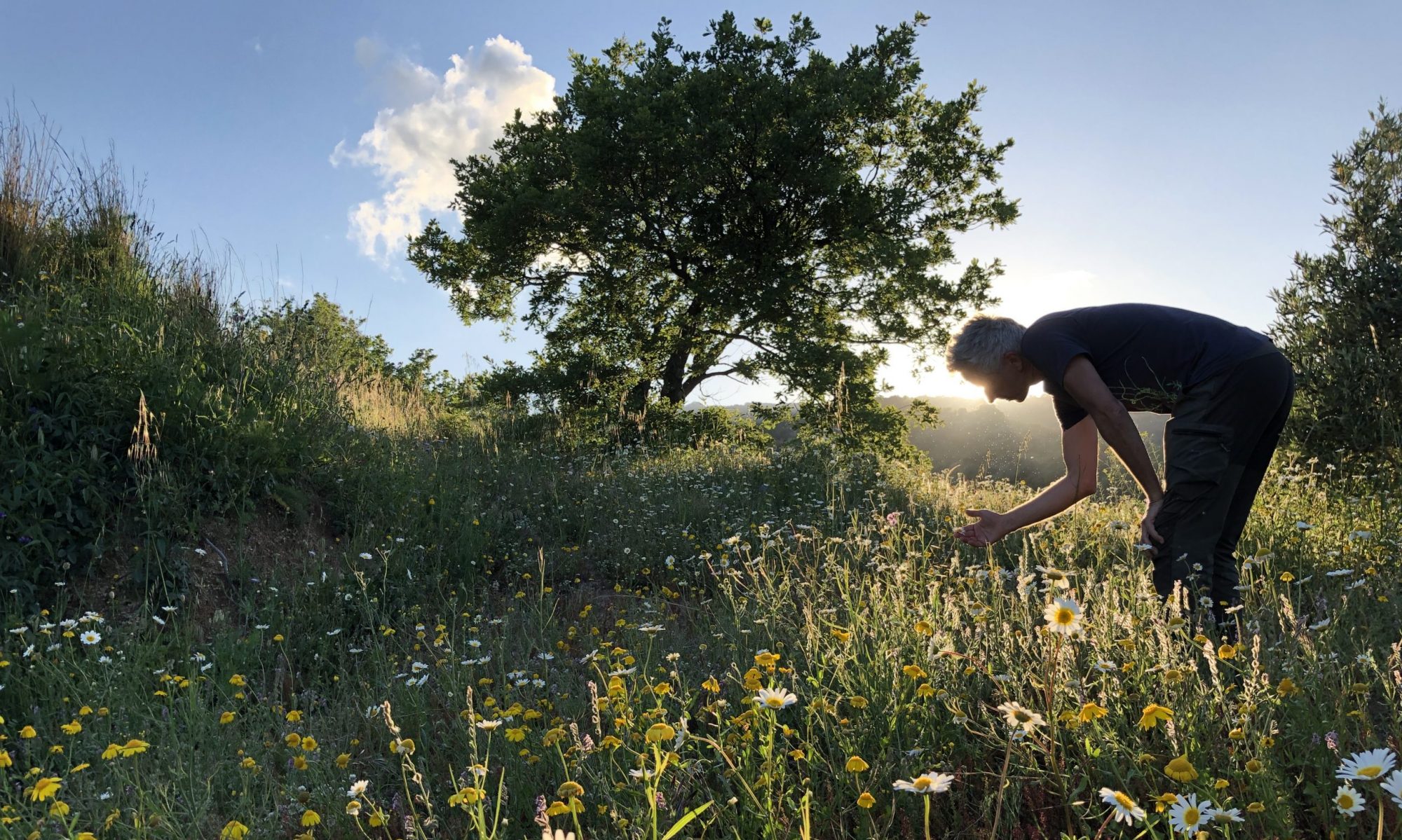
This year, 2021, we are happy to have harvested more than two tons of olives. Yeah!
We feel very fortunate to have had the help of volunteers and friends who joined us and enjoyed this experience with us.
We have been harvesting alongside Belgians, English, Dutch, Germans, Ghanaians, Polish, Swedish and Swiss… who offered their time and energy to make this happen 🙂
Together, we’ve picked the olives directly from the trees or we used light machinery to shake the olives into the nets on the ground to be collected immediately.

After sunset, when all the olives were safely packed in sacks, we drove them straight to the oil mill to be immediately cold-pressed on the same day. This way, the oil is extracted before the fermentation process of the fruit can start, thus preserving all of its amazing properties.
In order to maintain a maximum quality standard, we do not use olives that have fallen from the trees prematurely, as they usually have already started to ferment or are otherwise damaged or attacked by insects.
Despite having had an extremely hot and dry summer, especially at the beginning, nature is generous and has provided us with high-quality olives from which we have made outstanding oil.
Why do we know it is outstanding?
First of all, there is our own sensory assessment. We have made it a ritual to try the freshly pressed oil every time we come back from the oil mill. Usually, there is a quite complex sensation: on the tongue and palate, the full range of flavors of green olives present itself, while a rather spicy aftertaste unfolds in the throat. This itchy feeling in the throat is mainly caused by a polyphenol called Oleocanthal.
Several studies have shown the medicinal properties of this component but Oleocanthal is just one of many sorts of Polyphenols that can be found in olive oil.
Polyphenols are a group of substances present in plants and in olive oil, with a high antioxidant capacity and with positive effects on our health.
The functions of polyphenols in the body are:
- Antioxidant – They act on the skin and fight free radicals, thus helping to slow down cellular ageing.
- Anti-inflammatory – They help reduce chronic inflammation and the risk of heart disease.
- Protective – They improve the functioning of the inner walls of blood vessels. This produces a cardioprotective effect that reduces the accumulation of platelets.
The amount of polyphenols in olives is higher in young olives that are still green than in more mature ones. This requires a clear decision-making process by the producer in terms of quality vs. quantity. The earlier the harvest, the higher the quality but the lower the quantity of oil.
Our priority is to produce an oil with the highest concentration of beneficial elements, so we harvest early in the season in order to obtain the highest amount of polyphenols.
Agronomic factors affect the quality of olive oil as they directly affect the olive. These factors are classified as follows:
- Intrinsic: Those that can hardly be modified, such as the variety of the tree.
- Extrinsic: Those that can be controlled, with relative ease, by the farmer himself.
This is where our practice and experience can have an impact on the quality of the oil.
Through the application of regenerative methods, we focus on enhancing soil quality, improving water management, and increasing biodiversity.

So far, we have been adding organic matter around the olive trees, distributed rich compost extracts, and started sowing cover crops with leguminous species (Medicago Sativa, Vicia).
In the coming months, we’ll keep adding organic matter which is food for soil microbiology. In turn, these beneficial microorganisms will be making nutrients available for our trees.

At the same time, we strive to increase the microbial diversity (especially fungi), with the application of compost extracts to our soils.
We also plan to apply bio-active compost teas on leaf surfaces and stems of the trees in order to protect them from parasites and diseases.
Finally, we try to avoid compaction of our soil by machines such as heavy tractors and keep it covered as much as possible with mulch or cover crops throughout the year.
It’s an exciting journey for us as we acquire new knowledge and continue learning about new techniques in this field. We will keep you posted about the progress in one of our next articles as soon as our efforts start to yield reliable results.
We hope that you share our enthusiasm and passion for producing high-quality olive oil that not only tastes great but provides such interesting medicinal properties.
If you are interested in getting our Extra Virgin Olive Oil, please send us an email and we’ll organize it.
We would like to thank all our harvest hands: Carla, Stef, Jana, Hannes, René, Akasia, Sarah, Joël, Soul, Matthias, Vera, Ramses, Martin, and Corina. Thank you guys, you rock!
- “El Cultivo del olivo” – D. Barranco, R. Fernández-Escobar, L. Rallo
- https://www.olivetto.com.co/oliva-a-la-mesa/tipos-de-polifenoles-del-aceite-de-oliva/
- https://www.ncbi.nlm.nih.gov/pmc/articles/PMC6213726/
- https://www.oliveoiltimes.com/health-news/study-oleocanthal-regulates-abnormalities-in-receptor-responsible-for-alzheimers/98739









